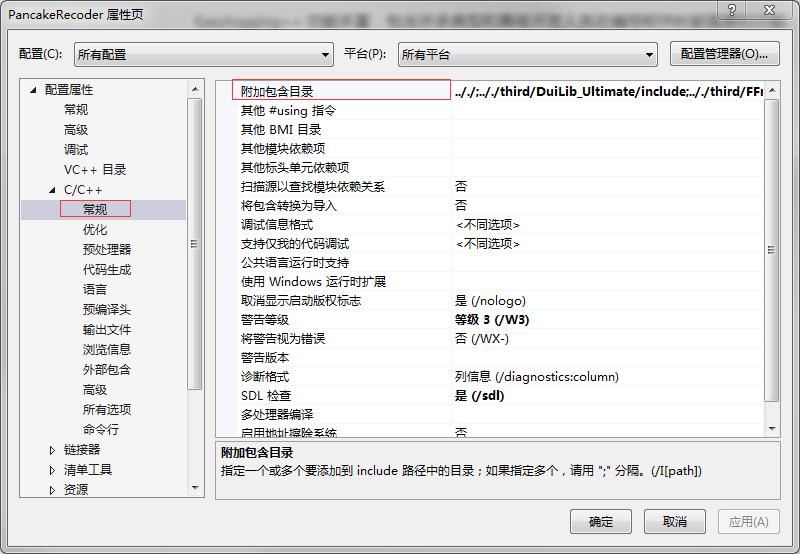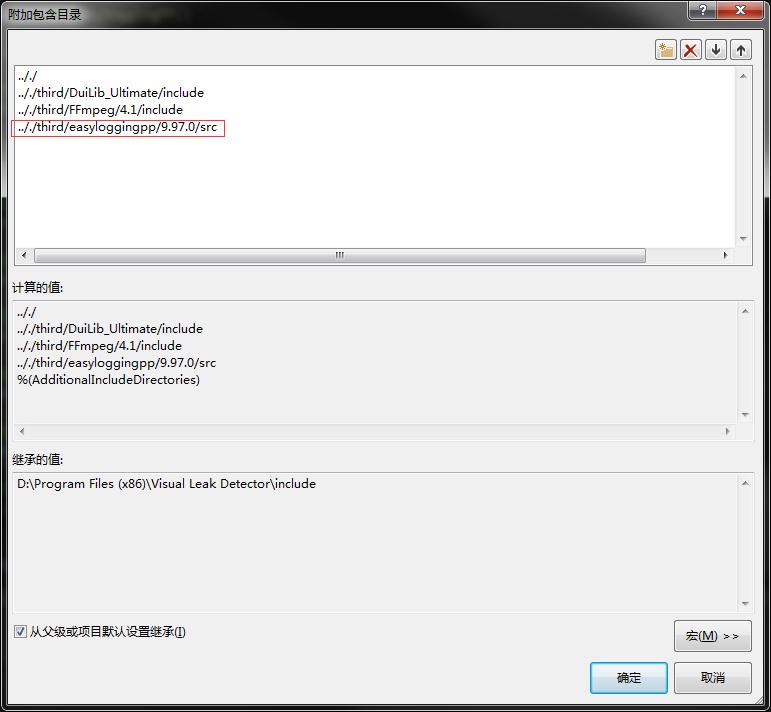C++ Easylogging++日志库配置使用超详细讲解
HW140701 人气:0Easylogging++
Easylogging++是一个只有单个头文件的开源跨平台日志库,拥有简单易集成,速度极快,线程安全,高效并可配置可扩展等等优点,现在也是我的主力日志库。
下载Easylogging++
Github地址:https://github.com/amrayn/easyloggingpp
从Githu下载Easylogging++,下载下来只有两个文件,easylogging++.h和easylogging++.cc。
在VS中配置Easylogging++
右键项目-属性-C+±常规-附加包含项目,添加easylogging++.h所在目录


将easylogging++.cc添加到项目中。
使用Easylogging++
(1) 包含头文件
// easylogging++ #include "easylogging++.h" #define ELPP_THREAD_SAFE
(2) 初始化Easylogging++
INITIALIZE_EASYLOGGINGPP
(3) 设置日志输出配置
static void InitEasyloggingPP()
{
el::Configurations conf;
// 启用日志
conf.setGlobally(el::ConfigurationType::Enabled, "true");
//设置日志文件目录以及文件名
conf.setGlobally(el::ConfigurationType::Filename, "log\\log_%datetime{%Y%M%d %H%m%s}.log");
//设置日志文件最大文件大小
conf.setGlobally(el::ConfigurationType::MaxLogFileSize, "20971520");
//是否写入文件
conf.setGlobally(el::ConfigurationType::ToFile, "true");
//是否输出控制台
conf.setGlobally(el::ConfigurationType::ToStandardOutput, "true");
//设置日志输出格式
conf.setGlobally(el::ConfigurationType::Format, "[%datetime] [%loc] [%level] : %msg");
//设置日志文件写入周期,如下每100条刷新到输出流中
conf.setGlobally(el::ConfigurationType::LogFlushThreshold, "100");
//设置配置文件
el::Loggers::reconfigureAllLoggers(conf);
}(4) 示例程序
// easylogging++
#include "easylogging++.h"
#define ELPP_THREAD_SAFE
INITIALIZE_EASYLOGGINGPP
static void InitEasyloggingPP()
{
el::Configurations conf;
// 启用日志
conf.setGlobally(el::ConfigurationType::Enabled, "true");
//设置日志文件目录以及文件名
conf.setGlobally(el::ConfigurationType::Filename, "log\\log_%datetime{%Y%M%d %H%m%s}.log");
//设置日志文件最大文件大小
conf.setGlobally(el::ConfigurationType::MaxLogFileSize, "20971520");
//是否写入文件
conf.setGlobally(el::ConfigurationType::ToFile, "true");
//是否输出控制台
conf.setGlobally(el::ConfigurationType::ToStandardOutput, "true");
//设置日志输出格式
conf.setGlobally(el::ConfigurationType::Format, "[%datetime] [%loc] [%level] : %msg");
//设置日志文件写入周期,如下每100条刷新到输出流中
conf.setGlobally(el::ConfigurationType::LogFlushThreshold, "100");
//设置配置文件
el::Loggers::reconfigureAllLoggers(conf);
}
int main()
{
InitEasyloggingPP();
LOG(INFO) << "Hello World";
}
加载全部内容